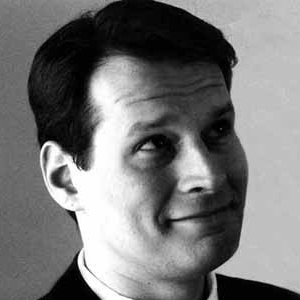NOTE: Images in this archived article have been removed.
 If you, too, think that modern civilisation has become increasingly dependent on complicated government and corporate entities whose exponentially growing use of natural resources render us vulnerable to cascading systemic crisis…
If you, too, think that modern civilisation has become increasingly dependent on complicated government and corporate entities whose exponentially growing use of natural resources render us vulnerable to cascading systemic crisis…
(deep breath)
… then you too might look back at the sentence you just wrote and think, “We need some shorthand for this.” You too might find it gratifying to talk to a group of people who already understand what you’re talking about — as dozens of us did last week at the Economics, Energy and Environment Conference in London.
Many who attended, it seemed, were trying to prepare for a difficult future – growing food, learning old-fashioned skills, or organising intentional communities – and had similar trouble explaining their reasons to the larger society. We have words for various pieces – “recession,” “peak oil,” climate change” and “collapse” — but each comes with its own baggage, and words that attract one political or cultural group drive away another.
“Recession,” for example, implies a temporary dip that ends with a step back up, rather than a stumble near the top of a very high pyramid, with normal far below. “Collapse” implies something sudden and irrevocable, after which it’s broken – not a gradual transformation that could restore things our culture has lost. I like James Howard Kunstler’s haunting phrase “The Long Emergency,” but it’s not familiar to most people, and I’m probably picturing something longer, slower and less dire than he is.
The problem is not in convincing people they are poorer and more stressed than they used to be; they already know that in their bones. The problem is explaining that the issues they care about are part of a larger system, one whose wheels are slowly and inexorably grinding toward a general destination. That the problems won’t be fixed tomorrow, but that the world probably won’t end tomorrow either. That some problems will never be fixed – the world won’t change, but we can. And that, in some ways, the result could be better than what we have now.
If all this sounds quite vague, it’s because these issues are too big to summarise in three paragraphs, or even in a one-hour talk or five-week course. Judging from their talk at the conference last weekend, however, the presenters at London’s School of Economic Science did about as good a job as anyone could.
The conference began with a talk by Matthew and Hugh McNeill, briefly summarizing the course they gave, each week dealing with a different aspect of the Long Emergency. The first week they dealt with the economic models of E.F. Schumacher and Greer — the natural world supporting the human-made economy, which in turn supports the financial economy. The second week dealt with energy and thermodynamics, the third with human societies; week four dealt with human creations like finance, and week five with practical responses.
After the McNeills came John Michael Greer, whose many books and “Archdruid Report" blog are already familiar to many people reading this — as were, inevitably, portions of his talk. Some of it was entirely new, however, even to the avid follower.
Among other things, Greer pointed out that we’ve created a world in which we use the financial industry for every need; we buy food, buy our belongings, and buy entertainment, and the finance industry takes a cut out of all our interactions. In a time of growth, the cut is small — but as energy declines, the cut will take up a greater and greater portion. The more of our food we can grow or raise ourselves, the more tools we can make or fix, the more we can entertain ourselves, the less the financial world can act as an intermediary between ourselves and our lives. "Disintermediation,” as he put it, would put more and more of our lives back under our own power.
Greer reminded listeners that no one else can or should dictate one solution for everyone, and he cautioned against democratic models that rely on consensus, finding them to gravitate to the lowest common denominator. Instead, he said, we should strive for “dis-sensus,” as scholar Ewa Zierek described it — many individuals and groups trying many different approaches, allowing people to see what works and what doesn’t.
Most of all, he said, we need to start the change inside our own heads, abandoning the belief in progress that has served so long as an excuse for putting off problems. Most human societies, he said, have not had a belief in progress and got along just fine; the Romans believed that things were worse before their own empire, but they didn’t believe that path had to continue forever. The religion of progress, however, demands that we continue on the same course, and world leaders will likely try many ways to do so even as resources run short. We are now entering a time when, as anthropologist Joseph Tainter put it, their solutions will be a major cause of new problems.

The last speaker was Robin de Carteret, a specialist in teaching complex and non-linear systems, giving a brief explanation followed by a series of exercises. In one of the more interesting examples, he asked a dozen or so people to gather in a circle, and that each person silently picked two other people in the group. Everyone was told to move until they were equidistant from the two people they had selected; they could be closer or farther away, as long as they kept the same distance from each. Of course, while each person moved to keep pace with their unwitting “partners,” they had been selected by someone else trying to keep pace with them, so everyone in the circle spent a minute or so jostling about – until at once everyone stopped, having reached a steady state.
Carteret pointed out that this kind of complexity is very difficult to organise in some kind of top-down command structure, but appears organically in complex systems. This also makes the system hard to predict, of course, as a small change in one component can ripple through the entire system. If the people in the group represented causes of climate change, he pointed out, moving one person – say, carbon dioxide – forces other components to move, which create still other changes until the entire structure settles on a new steady state.
Whether people came to the event from the conference or from following Mr. Greer, we all had some shared understanding of the problems, and that was a rare and precious thing, allowing everyone to relax and get down to business – over lunch, coffee, or beers at the pub down the street. We separated that night and returned to our different lives and countries, with new acquaintances made and inspirations shared, wondering if any ripples began here that would be felt later and far away.
People moving image via shutterstock. Reproduced at Resilience.org with permission.
 If you, too, think that modern civilisation has become increasingly dependent on complicated government and corporate entities whose exponentially growing use of natural resources render us vulnerable to cascading systemic crisis…
If you, too, think that modern civilisation has become increasingly dependent on complicated government and corporate entities whose exponentially growing use of natural resources render us vulnerable to cascading systemic crisis…  The last speaker was Robin de Carteret, a specialist in teaching complex and non-linear systems, giving a brief explanation followed by a series of exercises. In one of the more interesting examples, he asked a dozen or so people to gather in a circle, and that each person silently picked two other people in the group. Everyone was told to move until they were equidistant from the two people they had selected; they could be closer or farther away, as long as they kept the same distance from each. Of course, while each person moved to keep pace with their unwitting “partners,” they had been selected by someone else trying to keep pace with them, so everyone in the circle spent a minute or so jostling about – until at once everyone stopped, having reached a steady state.
The last speaker was Robin de Carteret, a specialist in teaching complex and non-linear systems, giving a brief explanation followed by a series of exercises. In one of the more interesting examples, he asked a dozen or so people to gather in a circle, and that each person silently picked two other people in the group. Everyone was told to move until they were equidistant from the two people they had selected; they could be closer or farther away, as long as they kept the same distance from each. Of course, while each person moved to keep pace with their unwitting “partners,” they had been selected by someone else trying to keep pace with them, so everyone in the circle spent a minute or so jostling about – until at once everyone stopped, having reached a steady state.





